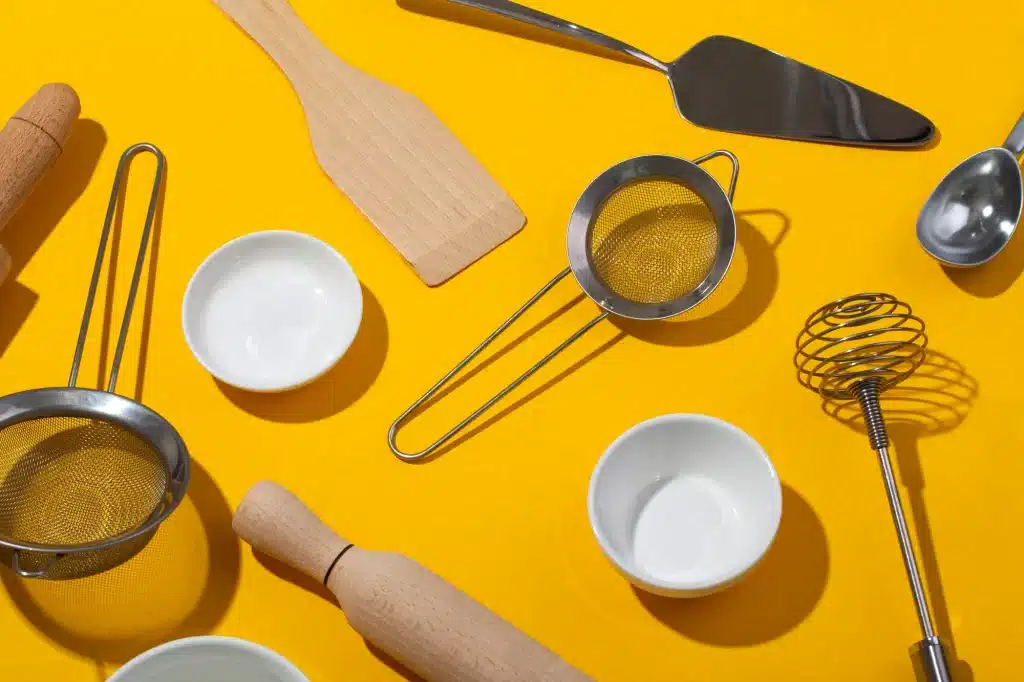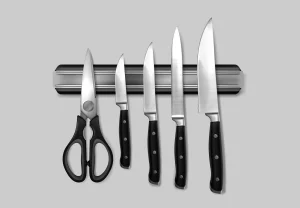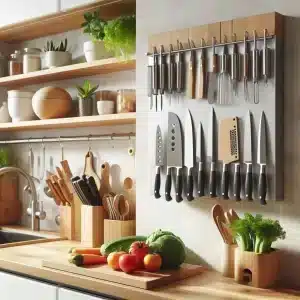Why Choosing the Right Cooking Utensils Matters
When it comes to cooking, the utensils you use can be just as important as the ingredients you select. The right tools not only make the cooking process easier but also ensure that your food remains healthy and free from harmful toxins. With a wide variety of options available, from traditional metal to modern silicone, understanding which utensils are truly safe for cooking is crucial.
Exploring Different Types of Cooking Utensils: What’s Safe and What’s Not
There are countless types of cooking utensils available, each made from different materials, and not all are created equal when it comes to safety and health. Some materials can leach harmful chemicals into your food, especially when heated to high temperatures, while others provide a safe, non-toxic cooking experience. Knowing the difference is key to making the healthiest choice for your kitchen.
The Best Materials for Healthy Cooking
Stainless Steel: Durable and Non-Toxic
Stainless steel is a kitchen staple for a reason. It’s durable, resistant to rust and corrosion, and importantly, it does not leach harmful chemicals into your food. Stainless steel utensils are perfect for a wide range of cooking tasks, from stirring to sautéing, and are often used in professional kitchens. They’re easy to clean, dishwasher safe, and can handle high temperatures without degrading.
Cast Iron: A Traditional, Healthy Choice
Cast iron has been used in kitchens for centuries, and for good reason. When properly seasoned, cast iron cookware provides a natural non-stick surface without the need for synthetic coatings that can release toxic fumes. Additionally, cooking with cast iron can even add small amounts of iron to your food, which can be beneficial, particularly for those with iron deficiencies. However, cast iron requires maintenance to prevent rust, including regular seasoning with oil.
Ceramic: Non-Toxic and Versatile
Ceramic cookware is known for its non-toxic, non-reactive properties. Unlike some non-stick options that contain PTFE and PFOA, ceramic cookware is free from harmful chemicals. It’s ideal for low to medium heat cooking and offers a smooth, non-stick surface that’s easy to clean. However, ceramic utensils need to be handled with care to avoid chipping, which can affect their longevity and performance.
Silicone: Flexible and Safe for Non-Stick Cookware
Silicone utensils are highly heat-resistant and non-reactive, making them an excellent choice for non-stick cookware. They’re flexible, which makes them perfect for scraping bowls and pans without damaging the surface. Unlike plastic, silicone doesn’t release harmful chemicals when exposed to heat, making it a safer option for cooking. Silicone utensils are also dishwasher safe and come in a variety of colors and designs to suit any kitchen aesthetic.
Wood and Bamboo: Natural and Gentle on Cookware
Wooden and bamboo utensils have been a kitchen favorite for generations. They are renewable, biodegradable, and do not conduct heat, which means they stay cool to the touch even when left in hot pots. These utensils are gentle on cookware, particularly non-stick surfaces, and don’t scratch or damage them. However, it’s important to note that wooden utensils need to be hand-washed and regularly treated with oil to prevent them from drying out or cracking.
Utensils to Avoid: The Hidden Dangers
While many utensils are safe, there are some that can pose risks to your health:
- Non-Stick Coated Utensils: Many non-stick utensils are coated with Teflon (PTFE), which can release harmful fumes when overheated. It’s better to avoid these or ensure they’re made from safer alternatives like ceramic.
- Plastic Utensils: While convenient, plastic utensils can melt and leach harmful chemicals into your food when exposed to high heat. BPA-free plastics are a safer option, but natural materials are preferable.
- Aluminum Cookware: Uncoated aluminum can react with acidic foods, leading to the leaching of aluminum into your meals, which has been linked to health concerns. Anodized aluminum is a safer option, but stainless steel or cast iron are better choices.
How to Maintain and Care for Your Healthy Utensils
To ensure that your utensils last long and continue to be safe for cooking, proper care is essential:
- Stainless Steel: Avoid abrasive cleaners that can scratch the surface. Instead, use mild dish soap and water. Dry immediately to prevent water spots.
- Cast Iron: Season regularly by applying a thin layer of oil after each use. Avoid soaking in water for long periods to prevent rust.
- Ceramic: Use wooden or silicone utensils to avoid chipping. Hand wash to preserve the coating.
- Silicone: Dishwasher safe but can be hand-washed with mild soap. Avoid cutting directly on silicone surfaces to prevent damage.
- Wood and Bamboo: Hand wash and dry immediately. Regularly oil with food-safe oils like mineral oil to maintain moisture.
Choosing the right cooking utensils is a crucial step in maintaining a healthy kitchen. Whether you opt for the durability of stainless steel, the tradition of cast iron, or the eco-friendliness of bamboo, each material offers unique benefits that contribute to safer, healthier cooking. By understanding the properties of each utensil and how to care for them, you can ensure that your kitchen is equipped with the best tools for preparing nutritious meals for you and your family.





